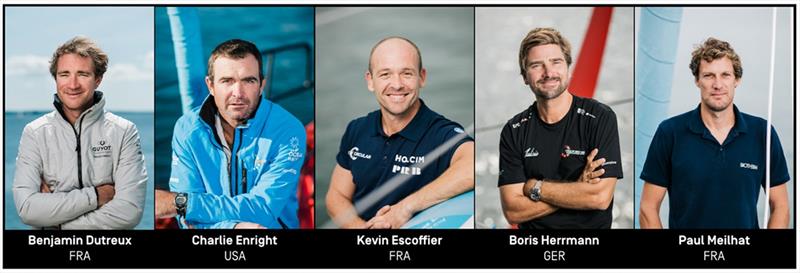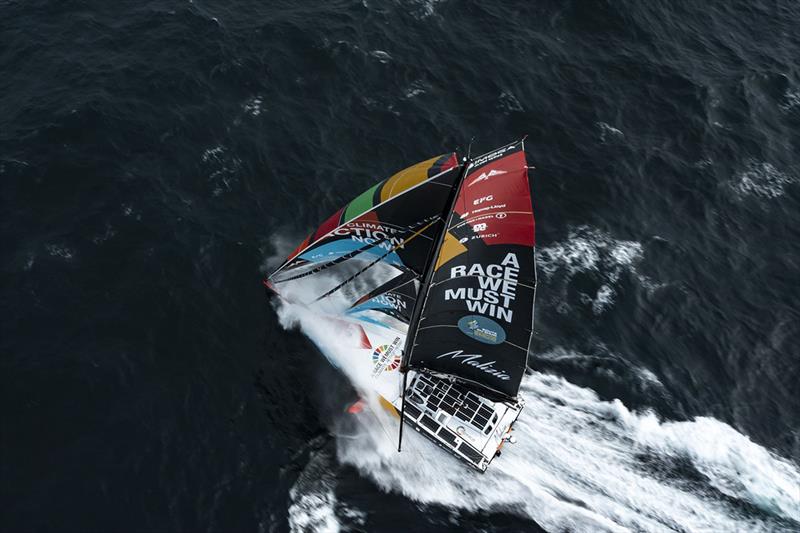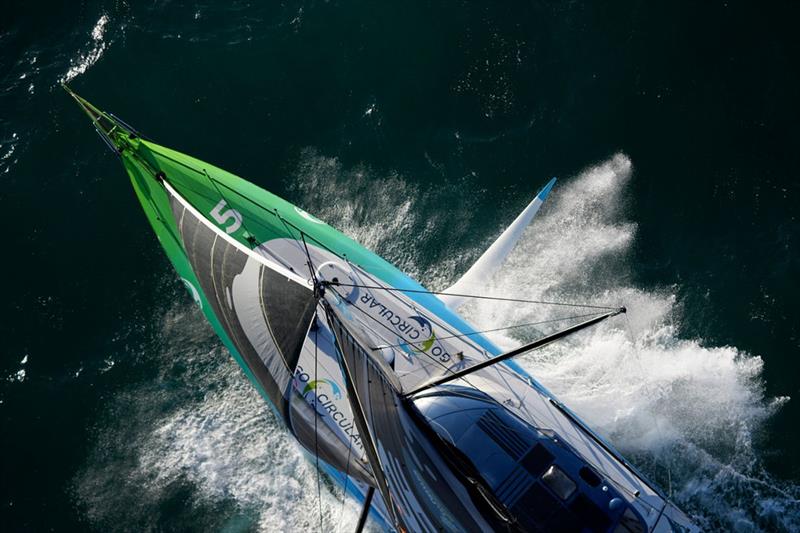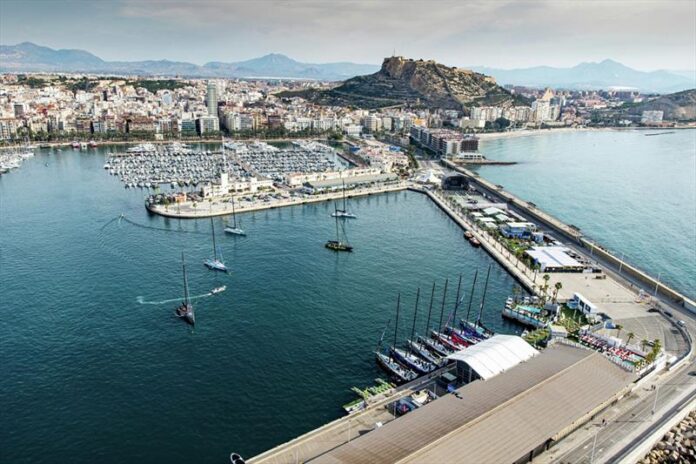It has been a long wait, but the 14th edition of The Ocean Race is finally upon us and this time – for the first time – the IMOCA Class is the pre-eminent feature of what has always been known as the world championship of fully-crewed offshore ocean racing.
In the history of the sport, this is a special moment as the French-dominated Vendée Globe culture embraces the more Anglo-Saxon traditions of The Ocean Race, an iconic event celebrating its 50th anniversary and formerly known as the Volvo Ocean Race and Whitbread Round the World Race.
What we are about to witness are the fastest boats ever to take on The Ocean Race, with five of the best-performing foiling IMOCAs being pushed fully-crewed for the first time by elite sailors, starting with the first leg from Alicante in Spain to Cape Verde on January 15th.
In no particular order they are Paul Meilhat and his team on Biotherm Racing, Kevin Escoffier’s crew on Holcim-PRB, Team Malizia led by Boris Herrmann, Charlie Enright and his crew on 11th Hour Racing Team, and finally Benjamin Dutreux and his crew on Guyot Environnement-Team Europe.

The highlights of a marathon 32,000-nautical mile contest, which features seven offshore legs and visits to nine iconic cities, are sure to include the massive leg three through the Southern Ocean – the longest in The Ocean Race history at 12,750 miles – and the transatlantic leg from Newport to Aarhus in Denmark.
But along the way we will find out what fully-crewed IMOCA racing is all about as the teams push as hard as they dare without breaking their boats in the Southern Ocean and on coastal legs in northern Europe, as they bid to become the first Ocean Race champions of the new era.

Antoine Mermod, the president of the IMOCA Class, is in no doubt that this is a major departure for the sport of sailing. “It is an historic moment for offshore racing because, on one side, we have the French culture of the Vendée Globe and on the other the Anglo-Saxon way with The Ocean Race,” he said. “To be able to bring them together, plus the other national teams, is an historic moment because we can say yes, this is the best level – it is the top of the game. It is historic not only for IMOCA but for all of us – it makes our sport much, much stronger than before.”
Mermod believes The Ocean Race will test IMOCA teams in a way never seen before and that meeting its unique demands this will become a goal for future entrants in years to come. “The biggest challenge is the race itself,” he said. “It requires creating a team and a system to be at the right level in terms of sailing competitiveness, and the technical and human aspects of the race. To win, or to finish, you need to have a strong package in all the disciplines and that is the biggest challenge for the teams, especially those that are used to preparing for single-handed races. So they need to adapt and upgrade their programme to meet the challenge of The Ocean Race.”
Race director Phil Lawrence, a British former Olympic sailor, says this is going to be an action-packed contest which will see the IMOCAs pushed beyond their normal limits by crews of four – at least one of which will always be a female sailor – accompanied by an Onboard Reporter.
“It’s the first opportunity to see these boats sailed to their maximum potential with a crew,” said Lawrence, who has been race director of The Ocean Race since 2016. “It’s going to be interesting because although they perform very well single-handed, the potential performance of the boats is tremendous and I am hoping that the fully-crewed aspect will unlock some of that.”
Lawrence believes records are likely to tumble as some of the top-performing new foiling IMOCAs are pushed hard in the Southern Ocean. So watch out for a new 24-hour distance record for the race – currently standing at 602 miles – and even an assault on the 618-mile outright monohull 24-hour distance record set by the super-maxi Comanche in 2015.
While leg three, from Cape Town to Itajai in Brazil via Cape Horn, will be the Queen stage of this race – like stage five across the Atlantic, it attracts double points – Lawrence says there is plenty to challenge the crews on some of the shorter, coastal legs. “The leg from Aarhus round to the Hague is always tricky,” he said. “There are masses of exclusion zones and wind farms. Then getting down the English Channel and back into the Med on the final stretch will be tricky too. The Med can be very light at that time of year (mid-June), so I am sure the winning team will be looking to get this race won before they tackle that final stage.”
Neither Mermod nor Lawrence believes the hardships experienced by a full crew trying to live on board an IMOCA built for just one or two people is going to be an issue. Four of the teams sailed back to Europe from Guadeloupe after the Route du Rhum in fully-crewed configuration and there were no complaints on that score.

“They are all professional sailors and they are in it to win it and to maximise their performance and that’s what their game is,” summarised Lawrence. “There were no indications of issues in that area from sailors coming back across the Atlantic on their recent delivery which saw tough upwind conditions.”
Both Mermod and the owners of The Ocean Race – Johan Salén and Richard Brisius – are hoping that more IMOCA teams will take up the challenge for the next race in four years time. In the meantime the plan is to harvest and share as much data from this edition as possible for the benefit of all IMOCA teams, especially when it comes to racing in the Southern Ocean, whether fully-crewed or solo.
“This is a new game for our teams and skippers,” said Mermod. “We will learn a lot about sailing around the world, about sailing in the South, about the boats, the technology and their reliability and limits. Most importantly, we will learn a lot about how to create a team and how to build a stronger team – it’s a very exciting challenge.”






